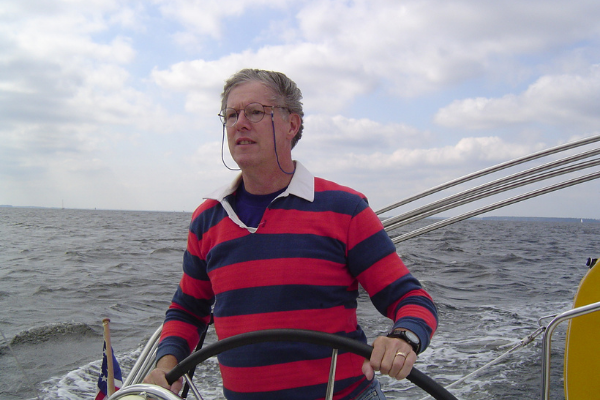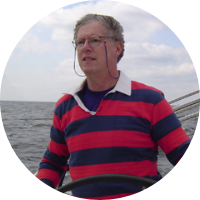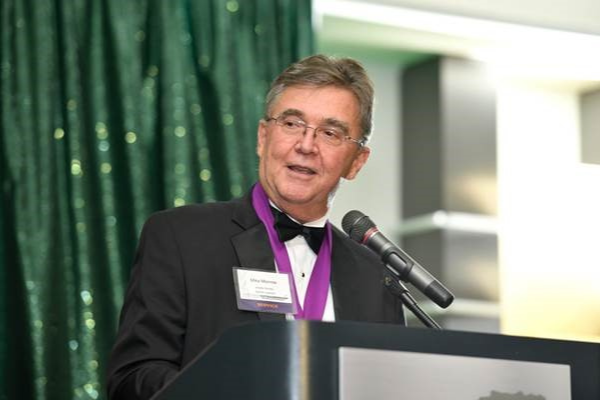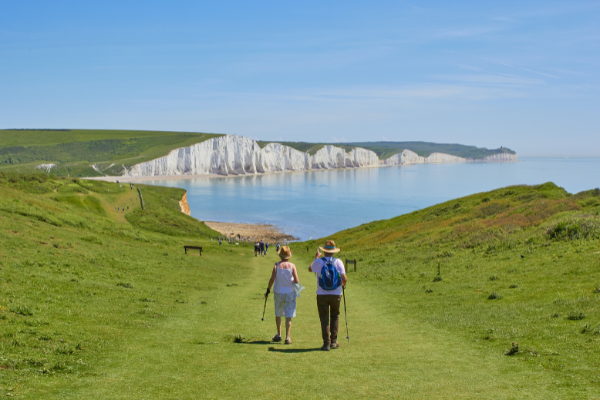
Did you choose retirement? Or was it chosen for you?
In my case, the decision to retire was mutual. I had 34 years’ experience in total including 30 years with my last employer. The pharmaceutical industry was changing, and our company was downsizing, which convinced me the time was right for me to retire. Many of my younger colleagues went to other companies, including start-ups in our area, but I was not interested in starting a new job or moving, so retirement was my best option.
How was the transition from the working world to retirement?
The transition to retirement was easy and gradual for me. Within a week of my last day at my former job, I received an invitation to become a half-time lecturer in chemistry at my alma mater, NC State University. This position gave me continued contact with the chemistry community while pursuing other interests. I kept that position for three years, before I became fully retired.
Looking back, what do you wish you knew about retirement before you retired?
I cannot think of anything now that I needed to know then. My wife and I had been planning for retirement for some time, and we had excellent financial advisors, who helped us manage our finances.
What do you enjoy most about being retired?
For me, retirement is like being self-employed; I get to decide how I will invest my time and resources. I enjoy boating and the coast a lot, and I have two volunteer positions that I value highly. One of these is as a patient navigator at the UNC Cancer Center where I advise patients and their families on resources that are available to help them mitigate non-medical problems that impact their treatment and recovery. The second is as a docent at the Beaufort Historic Site where I give guided tours of our historic buildings and our colonial era cemetery to visitors and school groups. These positions allow me to interact directly with a variety of people, which I missed having worked in a lab my whole career, and to learn about topics and develop skills that I find interesting.
How do you stay connected to the chemistry enterprise as a retiree?
I must admit that I have gradually moved away from chemistry, although I maintain close contact with the Chemistry Department at NCSU. I still look at C&EN online, get email alerts from ACS, and maintain contact with ACS friends on Facebook.
What do you like most about where you are living in retirement? What’s one thing you wish you could change about where you live?
My wife and I have lived in Research Triangle area for 43 years, so we have a lot of friends and family, especially our grandchildren, in the area, who are very important to us. We have excellent medical and retirement facilities nearby, that are becoming more important to us as we age. We also have an abundance of recreational, entertainment, and cultural opportunities available, and we are within easy reach of our coastal home in Beaufort. The biggest drawback is that other people recognize the area’s attraction, and the population is exploding, making the region crowded.
What advice do you have for people who are getting ready to retire?
Retirees need to have something to occupy themselves, so they should give considerable thought to the role they hope to play in addition to the economics of retirement. I know several scientists in the area who will not retire because they can’t imagine themselves doing anything else. I would not be too hasty in moving to a new location unless a strong reason exists. Many of the retirees in our area came here to be closer to their children, who moved to the Research Triangle for work, but that costs them the friends they left behind, so retirees who relocate must plan on having to actively work on establishing new relationships.

Eric C. Bigham received his PhD in organic chemistry from Princeton University in 1975 and his BS in Chemistry from North Carolina State University in 1969. Eric spent his entire career working in the pharmaceutical industry, holding positions in medicinal chemistry, cheminformatics, and computational chemistry at GlaxoSmithKline, GlaxoWellcome, Burroughs Wellcome, and Pfizer.
In 2008-2010, Eric served as a general chemistry instructor at N. C. State university. In 2001, Eric was selected as the Distinguished Alumnus of the Year, College of Physical and Mathematical Sciences, North Carolina State University. He served the North Carolina Section of the ACS for many years in several capacities including chair and councilor, and he worked as a member of the organizing committee for the Southeast Regional ACS Meeting. Dr. Bigham received the Marcus E. Hobbs Service Award from the N. C. Section of the American Chemical Society in 1991.
At the national level, Eric was an ACS councilor for more than 15 years, where he served on the Membership Affairs Committee (chair) and Council Policy Committee. In 2005-2010, Eric was a member of the ACS Board of Directors. He served as a member of the Board Committee on Professional and Member Relations (chair), and he chaired the Board Committee on Grants and Awards and co-chaired the Board Oversight Group for Leadership Development. Currently, Eric is retired and volunteers as a Lay Patient Navigator at the UNC Cancer Center in Chapel Hill, and colonial history docent at the Beaufort Historic Site in Beaufort, NC.
This article has been edited for length and clarity. The opinions expressed in this article are the author's own and do not necessarily reflect the view of their employer or the American Chemical Society.











